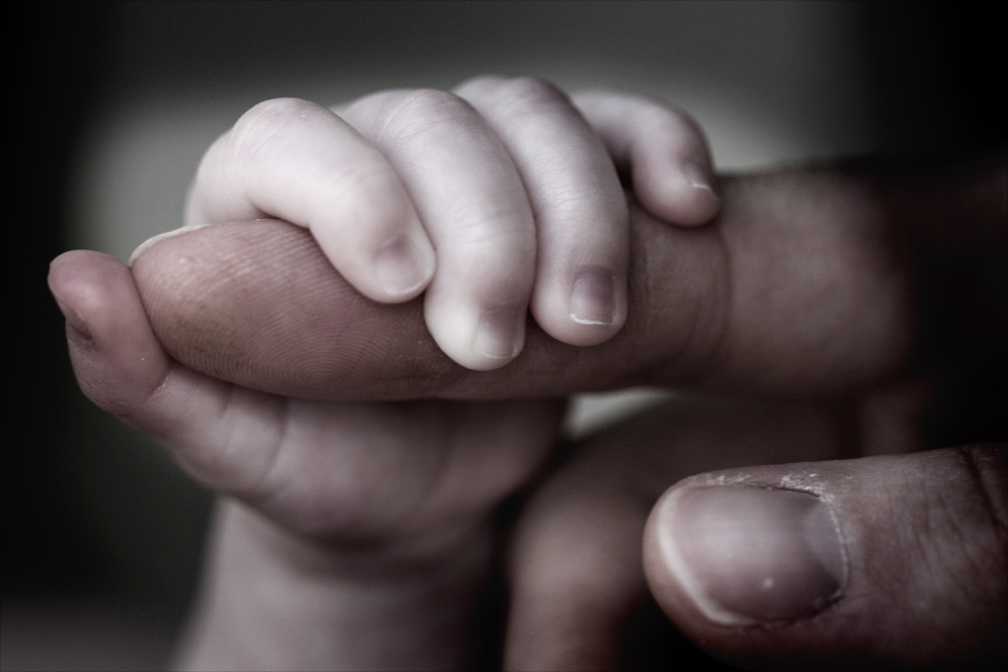Benjamin Pratt: As I Lay Dying . . . in this pandemic

Who will stand beside us as we die? In the midst of a pandemic, this question has arisen in countless families in America and around the world.
Who will hold our hand? Offer a prayer?
Until this year, the answer was a reassuring memory of generations of loved ones who have died. We all have stories we can share.
Here’s one of mine from a time before the pandemic: One day, I got an unexpected request. The trust implied touched my soul as a retired pastor. A member of our church community was near death, and the family requested pastoral presence at the hospital for the man’s final moments. Our church’s current pastors were not available so I was asked to be with the family.
When I entered the hospital room, a small family circle, including the patient’s wife and daughters, had formed. We held hands as each member of the family moved to hold the father’s hand, express gratitude, to kiss him good-bye. One daughter expressed her hope that her father had forgiven her for her difficult teenaged behavior. The father seemed unresponsive but more than one reported feeling his squeezing their hand as they spoke.
I led us in prayer to frame the expressions of gratitude, grief and hope expressed by the family and our faith traditions. It was a solemn, sacred moment as we all walked part way to eternity with this beloved man and his family.
This communal ritual has been practiced by families and clerics of all religious traditions for centuries. What I conducted with this family is common in our Protestant tradition. Other Christian faith groups include an anointing with oil, perhaps a final confession and sometimes the sacrament of communion.
When a Muslim baby is born, the parents often try to rush the infant to their imam, who bends near the infant’s ear and recites from the Quran, a profession of faith. When a person is near dying, they are encouraged to voice those words from the Quran themselves, but often it is an imam (or family member) who bends near the dying person’s ear and recites the same passage.
Jewish families recall the prayer that begins:
Mi shebeirach avoteinu
M’kor hab’racha l’imoteinu
May the source of strength,
Who blessed the ones before us,
Help us find the courage to make our lives a blessing,
And let us say, Amen.
Mi shebeirach imoteinu
M’kor habrachah l’avoteinu
Bless those in need of healing with r’fuah sh’leimah,
The renewal of body, the renewal of spirit,
And let us say, Amen
Are you recalling such circles in your family? These indelible moments are often moments of compassion, forgiveness and the beginning of recovery from grief.
Sometimes death comes so traumatically that we never experience such closure. Are you recalling such endings in your family?
Are you wondering: Who will stand with me as I die? Don’t be afraid of the question. It’s common and may be a powerful moment of spiritual reflection.
And, of course, you already know the truth that is unspoken in all of this. During the pandemic, families cannot gather in these circles in most parts of the world. Giving up Easter together early in the pandemic—or making do with a virtual Passover seder, or skipping the nightly Ramadan dinners with families—is something we all can abide. “It’s just for now …” we say. We know we all will celebrate future Easters, Passovers and Ramadans together.
But at death? At that singular moment? To find the doors to the ICU locked and sealed?
That is why, this week, all of us should take a moment to thank the new members of our families who are standing in for us. In thousands of families, now, doctors and nurses form the final circle. Nurses hold phones or tablets so that loved ones may see and speak to their dying family member. Nurses hold the hands, wipe the brows, communicate love with their hands and eyes and a few tender words, even prayers. Nurses are indeed the new chaplains anointing and performing the rituals of dying, which were long part of the pastoral and family process.
The nurses, male and female, comfort the shivering, quaking body to calm the trembling soul. They love with their hands and eyes and caress with their tears and quiet, verbalized or silent prayers. They walk part way to eternity with their patients.
We give thanks for their loving, compassionate caregiving.
.......
Care to learn more?
GET THE HELPFUL ‘GUIDE FOR CAREGIVERS’
Now, 1 in 5 adult Americans is a caregiver—more than 50 million of us. Together, we are women and men who give of body, mind and soul to care for the wellbeing of others. In this calling, we all need help—more than financial and medical assistance. We know anger, frustration, joy, laughter, purpose, mortality and immortality. We need daily, practical help in reviving our spirits and avoiding burnout.
Benjamin Pratt’s book, Guide for Caregivers, is intended to restore a new and right spirit in us. Our goal is to restore balance to our spirits—to replace sadness with laughter, fear with hope, exhaustion with vitality, mourning with gratitude, emptiness with joy and burnout with a rekindled passion.
Guide for Caregivers is drawn from the wisdom of many caregivers and we have taken their advice: These are short, easy-to-read sections packed with wisdom and practical help! This book is designed to let readers jump in almost anywhere and explore at their own pace.
NOTE: THE PHOTOGRAPH accompanying today’s story is provided via Wikimedia Commons via Creative Commons licensing, thanks to photographer David Swait. If you are sharing this column with your audience, you can also include the photo if you make sure to credit this photo properly.
......
